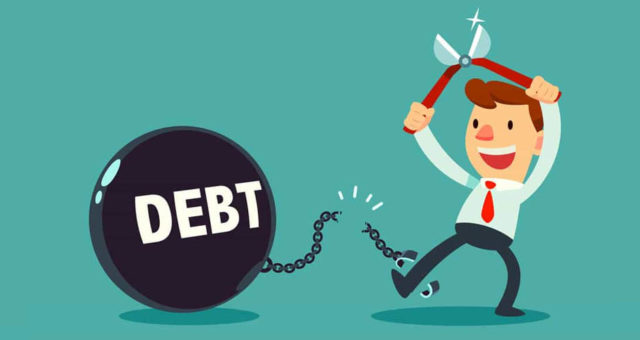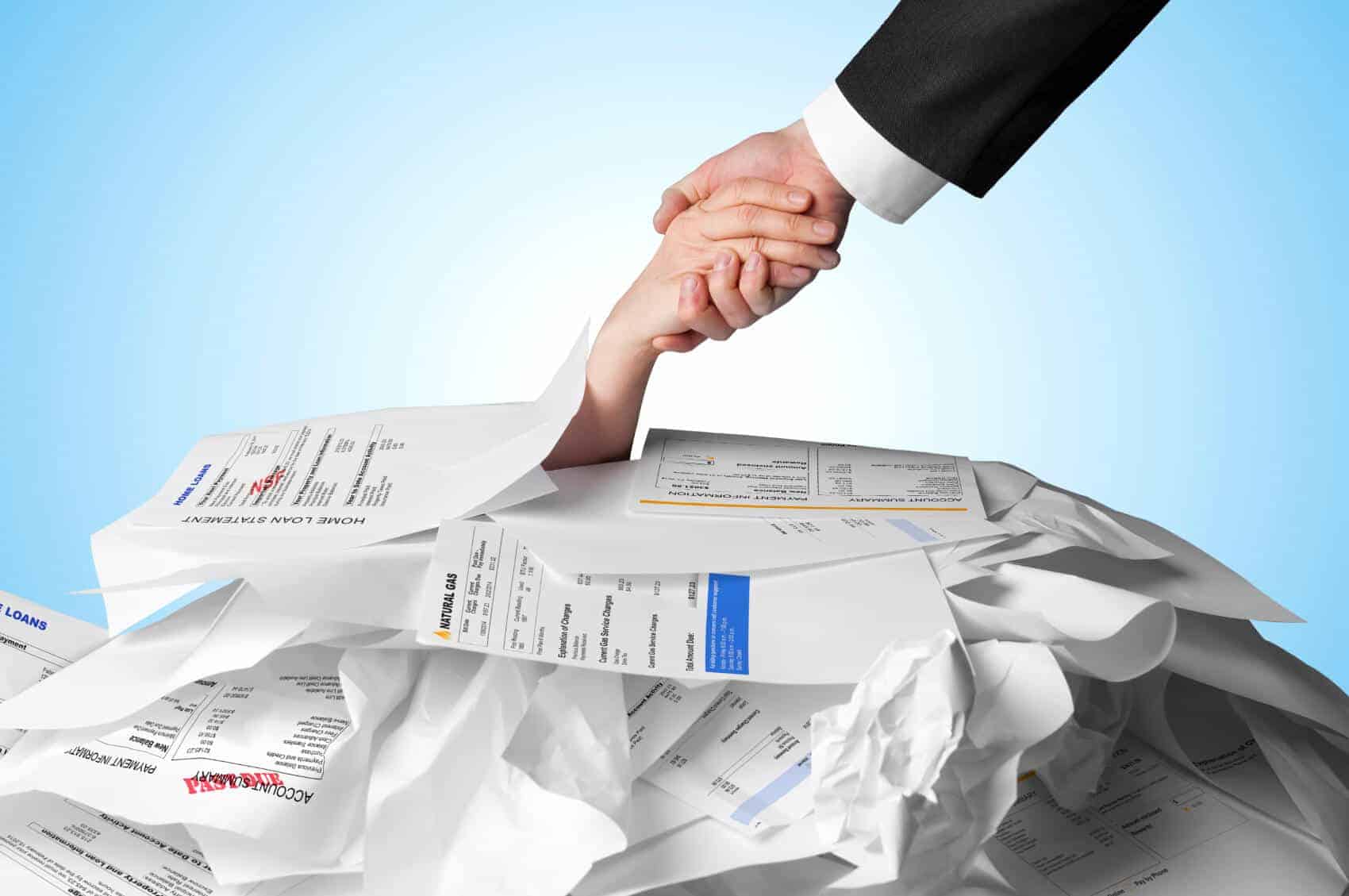The debtor settles with the creditor for a fraction of the original debt. Due to increased costs of living and consumer debt, debt settlement is becoming more popular. Lately, the average American household owes $38,000 on credit cards. The COVID-19 pandemic’s influence on people’s capacity to make ends meet may also increase debt.
Debt settlement helps people recover financially. Creditors can settle debts for a part of the amount owed to allow for more manageable payments. Debt settlement is risky, thus it should be carefully considered. This information will help you make a financial decision that takes into account debt settlement’s procedure, benefits, drawbacks, and alternatives.
What is Debt Settlement?
Debt settlement involves bargaining with creditors. An impartial debt settlement firm negotiates lower payments with creditors for the debtor. The debt settlement agency may offer a lump sum payment to the creditor for a debt reduction or cancellation.

Debt settlement takes years. Debtors can save while paying off their debts. Debt settlement might damage credit ratings because late or missed payments are reported. Debt settlement fees may also boost debt negotiation costs.
In acute financial difficulties, settling debts is a last resort. Debt settlement candidates should prepare and research. Before using a debt settlement company, make sure they’re legit. A reputable debt settlement company should explain costs, timing, and credit score impact.
How Does Debt Settlement Work?
Enrollment
A debt settlement program is something that the debtor will participate in by engaging the services of a debt settlement company. They stop making payments on their debt and start depositing any money that is in excess into a savings account instead.
Negotiation
Debt settlement firms communicate with the debtor’s creditors and negotiate on the debtor’s behalf in order to reduce the total amount of money that is owed. The end goal is to negotiate a lower amount with the creditor that you both feel will satisfy both of your needs.
Payment
As soon as the debtor and the creditor come to an agreement regarding the terms of a new payment plan, the debt will be paid off in full using a single payment taken from the savings account.
Debt forgiveness
Once the creditor has received the one-time payment in full, any outstanding balance will be removed from the account. When a debt is forgiven, it is seen as having been paid in whole, and the debtor is discharged from any further responsibility to make payments on the outstanding sum.
Benefits of Debt Settlement
- Debt settlement can dramatically reduce the overall amount of debt that is due, allowing people to pay off their obligations sooner and with less of an impact on their budget than would otherwise be the case.
- If the entire amount of debt is paid down, then monthly payments can be lessened as well, which frees up more cash that can be put to use in other areas.
- Those who are unable to pay back their commitments in full and are considering declaring bankruptcy as an option to avoid filing for bankruptcy may wish to investigate debt settlement as an alternative to declaring bankruptcy.
- Getting out from under the burden of debt is an excellent method to improve your financial stability as well as reduce the stress that comes along with being in debt.
- Debt settlement businesses give professional counsel and support during the negotiation and settlement process to customers who are having problems dealing with their creditors on their own.
The Debt Settlement Process
Assessing your financial situation – You need to take a comprehensive look at your current financial circumstances, including the total amount of your debt, your monthly income, and the amount that you spend each month, in order to determine whether or not debt settlement is a viable solution for you.
Negotiating with creditors – After you have registered for a debt settlement program, the company will negotiate a lower settlement amount with your creditors on your behalf in order to satisfy the terms of the program.
Reaching a settlement agreement – After the negotiations with your creditors have been concluded, the debt settlement company will work with your creditors to reach a settlement agreement that outlines the new, reduced amount of debt that you will be responsible for paying off.
Repaying the settlement – After the agreement has been finalised, a one-time payment in the form of a lump amount drawn from the settlement fund will be made to the creditor. Any outstanding debt will be erased as soon as the creditor makes the payment in full, so there is no need to worry about it.
Considerations Before Settling Your Debts

Ooraa Debt Relief
Possible Effects on Your Credit Rating
It is possible for debt settlement to have a negative impact on your credit score. This is because there is a possibility that payments will be missed or made late all the way through the debt settlement process, and also because the debt will be reported as “settled” or “paid in full for less than the full amount owing.”
The Legitimacy of Debt Negotiation
Settlement of debts is permissible by law in the United States; however, the specifics of this authorization might vary significantly between states. Because some states have laws and regulations that are more rigorous than others, it is imperative that you are familiar with the specific legislation that applies in your state before enrolling in a debt settlement program.
Defaulting on a Settlement Agreement
If you breach the terms of a debt settlement agreement and fail to make payments as agreed upon, your creditors may take legal action against you. This may include garnishing your salary, taking possession of your assets, or getting a judgement from the court. The failure to comply with the terms of a settlement agreement can also have a negative impact on credit.
What to Look for in a Debt Settlement Company

Check Their Reputation and experience
Find a company that specialises in debt settlement and has a solid reputation as well as a history of being successful in the field. Verify the organization’s accreditation status with the Better Business Bureau, peruse feedback provided by previous clients, and consult professional references (BBB).
Be Aware of Fees
It is important that you find out whether the company that settles your debts will charge you any up-front fees or if they will simply charge you a certain amount on a monthly basis. To ensure that you are getting the best deal possible, it is a good idea to call around to a few different companies to find out what their prices are.
They Offers the Services You Need
Check to see if the debt settlement company can help you set up a savings account for settlement payments, negotiate with your creditors, and receive financial counselling. These are all essential steps in the debt settlement process.
Consider Company’s Transparency
A debt settlement company that can be trusted will be transparent about their services, prices, and the results they achieve. Be sure to give the program’s terms and conditions a thorough reading before signing up.
Legal compliance Matters
Check to see that the debt settlement company conforms with the laws and standards that are in effect in your state. You can get in touch with the office of the state’s attorney general if you want to find out whether or not the company has been the subject of any formal complaints.
Customer Support is Also Important
Your case manager at a reputable debt settlement company should provide you with up-to-date information and answer all of your questions as they come up. In addition, they should keep you informed about any new developments.
Debt Settlement Companies You Can Trust
| COMPANY | RATING | FEE FOR SETTLEMENT | FOUNDED | BBB RATING |
|---|---|---|---|---|
 Century Support Services Century Support Services | 4.5 | 18% to 25% | 2012 | A+ |
4.5 | 23% | 1999 | A+ | |
 National Debt Relief National Debt Relief | 4.0 | 18% to 25% | 2009 | A+ |
 Pacific Debt Relief Pacific Debt Relief | 3.9 | 15% to 25% | 2002 | A+ |
 Freedom Debt Relief Freedom Debt Relief | 3.7 | 15% to 25% | 2002 | A+ |
Are There any Debt Relief Options?
Alternatives to debt settlement that may be worth considering are:
- Debt consolidation: You can consolidate your debt by taking out a loan and then using the proceeds from that loan to pay down all of your other bills simultaneously.
- Credit counseling: A credit counselling company can offer a variety of services, some of which include support with budgeting, reduced interest rates and monthly payments, and representation in talks with creditors.
- Bankruptcy: You will have a negative impact on your credit that will endure for a long time, and it will remain on your report for up to ten years if you choose to go through with this process. However, you will be able to eliminate or drastically reduce the majority of your debt without breaking the law.
- Do-it-yourself debt repayment: To accomplish this without the assistance of a debt reduction company, you will need to create a budget, reduce your spending, and prioritize paying off your debt.




